It seems we can’t find what you’re looking for. Perhaps searching can help.
Sign Up for newsletter!
Subscribe to get the latest eBook!
Hotline






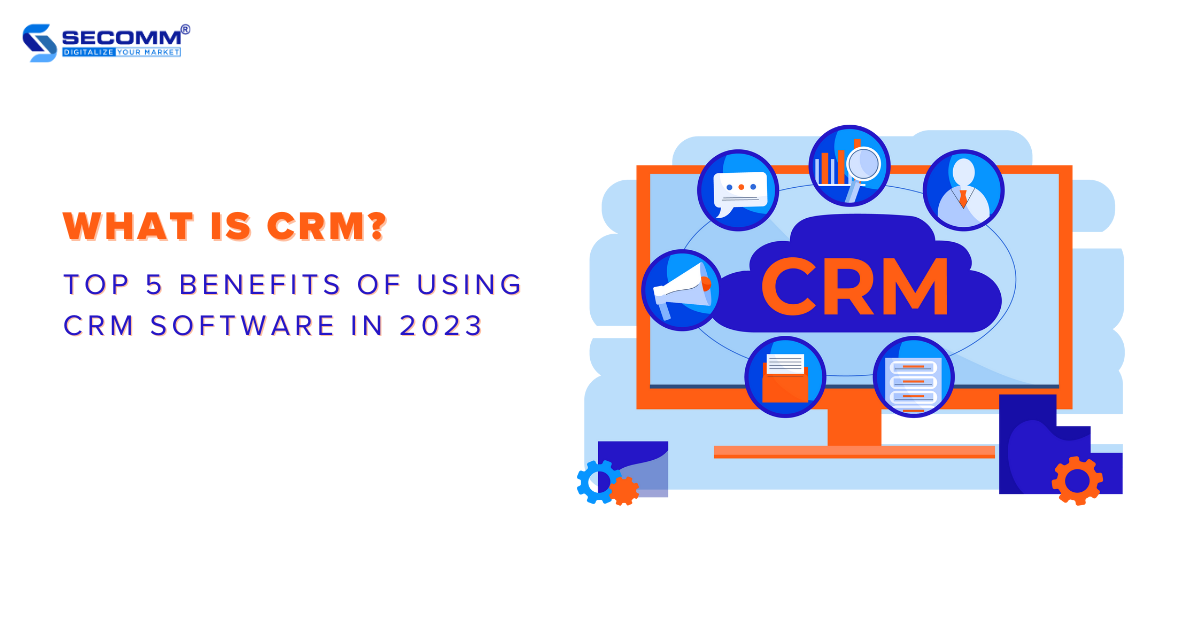
According to Fortune Business Insight, the projected value of the global Customer Relationship Management (CRM) market for 2023 stands at $71.06 billion, with expectations to surge to around $157.53 billion by 2030, exhibiting a Compound Annual Growth Rate (CAGR) of 12%.
CRM, a software solution, delivers numerous advantages for both sellers and buyers. This tool empowers businesses to forge enduring, meaningful relationships, yielding substantial profits. Meanwhile, customers can enjoy personalized and high-quality experiences.
The following article delves into the detailed definition of CRM, common types of CRM software, core features, and the benefits when businesses use CRM solutions.
CRM or Customer Relationship Management is a software solution crafted to help businesses efficiently manage their relationships with both current customers and potential leads.
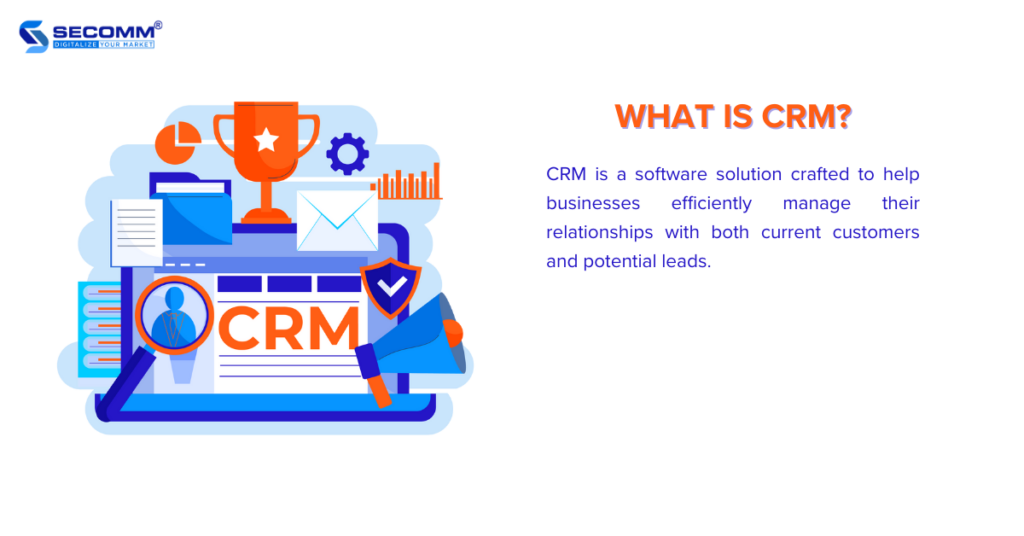
The CRM system is designed to carry out specific tasks, including:
By utilizing CRM software, businesses can eliminate the need for using scattered spreadsheets and apps. This helps overcome limitations, offering robust features for performance analysis and gaining insights into customer interactions.
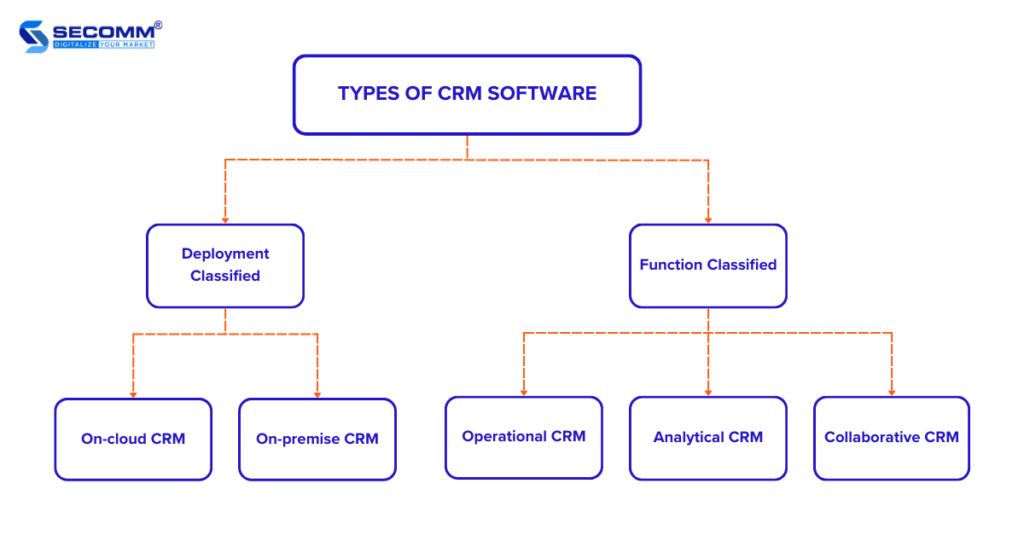
Related Reading: On-premise CRM vs On-cloud CRM: Key Differences
These CRM systems are crafted to help businesses manage sales, marketing, and customer service activities. The main goal of CRM software is to generate a pool of new potential customers, nurture these leads, convert them into loyal customers, and retain them through effective marketing strategies and top-notch customer service.
While the Operational CRM system helps businesses enhance customer attraction and retention, the Analytical CRM system allows businesses to understand how potential customers move through the sales funnel. These CRM solutions gather, store, and analyze customer data, delivering detailed insights into customer interactions with the business.
This facilitates businesses in assessing the effectiveness of marketing, sales, and customer care initiatives, allowing them to make necessary adjustments.
The main goal of Collaborative CRM software is to improve customer experience and streamline business processes by enabling communication and data sharing among internal departments and external stakeholders (suppliers, partners).
While operational and analytical CRM systems also allow for data sharing, collaborative CRM places a greater emphasis on enhancing the customer experience.
It is especially favored by businesses with extensive customer databases that necessitate tight collaboration between departments (sales, marketing, customer care) to ensure the optimal customer experience.
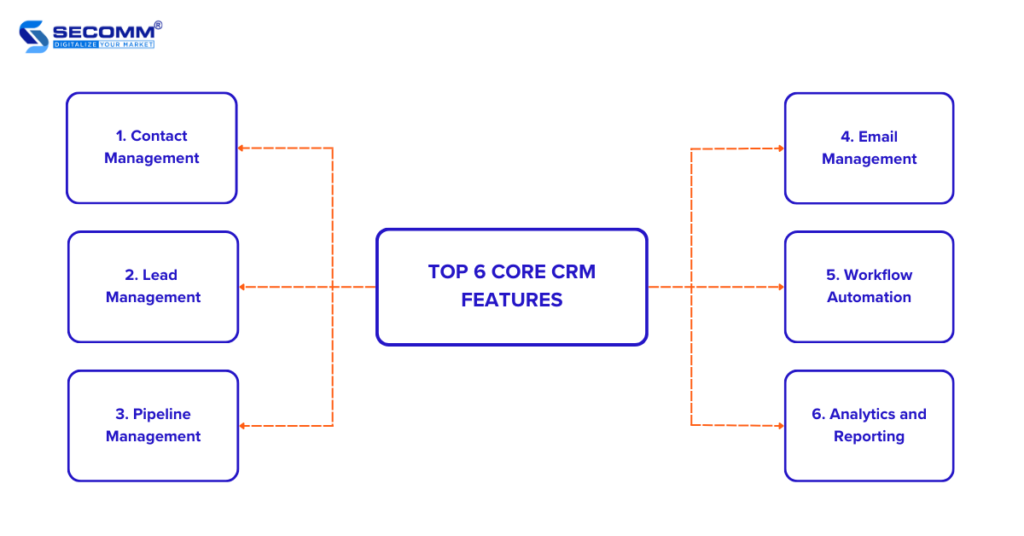
The first important feature to mention in CRM software is Contact Management. This feature allows businesses to store information related to customers and potential customers on the platform, ranging from their names, phone numbers, email addresses, and job details to more in-depth data such as interaction history and how each customer interacts with the business.
Lead Management is one of the core CRM features. This feature supports marketing and sales efforts by:
The Pipeline Management feature provides businesses with a visual overview of potential customers and existing transactions. Deals are separated into different stages of the pipeline. This helps sales representatives understand the status of each potential customer and aids them in deciding which leads to pursue.
Utilizing the Email Management feature, businesses can seamlessly integrate their email functionality with CRM software, facilitating the sending and receiving of emails directly within the CRM system interface.
This streamlined approach saves time, eliminating the need to navigate between various tabs for email communication and ensuring no missed opportunities to engage with potential customers.
The next crucial feature in CRM solutions is Workflow Automation, which comprises three fundamental aspects: Marketing Automation, Sales Automation, and Customer Service Automation.
Marketing Automation
The ‘Marketing Automation’ feature helps businesses simplify the marketing process by designing trigger elements for specific actions of customers and potential customers, such as:
In summary, the automated marketing process in the CRM system utilizes the “if-then” logic to automatically trigger interactive activities after customers or potential leads perform specific actions.
Sales Automation
Similar to ‘Marketing Automation,’ the ‘Sales Automation’ feature also uses trigger elements to help sales representatives automatically provide purposeful interactions with customers at specific points in the sales process.
Additionally, Sales Automation assists sales representatives in scoring and managing potential customers, while automatically generating sales forecast reports, enabling businesses to make informed decisions.
Examples of sales automation process:
Customer Service Automation
‘Customer service automation’ in CRM solutions refers to the use of automation technologies to enhance and optimize the customer service experience.
This may include using chatbots for online support, sending automatic notifications and updates to customers, automating the handling of basic customer requests and inquiries, and various other activities to save time and streamline workflows.
The ‘Analytics & Reporting’ feature in CRM solutions plays a crucial role in analyzing data and generating reports to help businesses gain a deeper understanding of their business performance, customer interactions, and market trends.
This is an important tool that enables businesses to make decisions based on accurate data, improve customer interactions, and optimize business strategies.
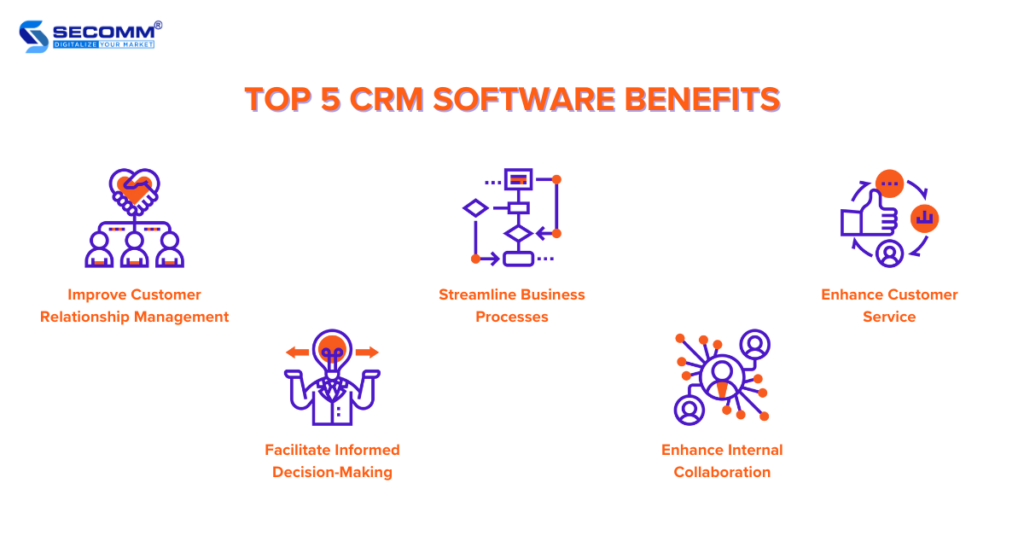
CRM software plays a pivotal role in enabling businesses to gather and store comprehensive information about customers, including interaction history and personal details. This helps understand customers and creates a personalized interaction experience, from providing better services to developing appropriate outreach strategies.
CRM systems help automate many aspects of the business process, such as sales management, marketing, and customer interaction tracking. This results in increased work efficiency, minimizes errors and enhances the ability to interact effectively with customers.
CRM platforms provide tools such as automated chatbots and customer support systems, facilitating the swift resolution of customer requests and inquiries. This enhances the customer experience, builds trust, and increases the chances of establishing long-term relationships
The CRM software’s data analysis features contribute to a more profound comprehension of customer behavior, business performance, and emerging market trends. This empowers businesses to make informed decisions and anticipate future developments.
CRM software facilitates tight collaboration among different departments within a business, working together on the platform. This encourages the exchange of information and internal interactions, ultimately enhancing data consistency, feedback capabilities, and accurate responsiveness to customer needs.
There’s no doubt that CRM software offers incredible benefits to businesses. From efficiently managing customer relationships to optimizing business processes and providing the best customer experience. CRM is not just a tool but a viable strategy that helps businesses build and maintain relationships with their customers.
Over the years, SECOMM has been accompanying many clients in developing CRM solutions. We have observed that in a competitive business landscape, choosing the appropriate CRM software is as crucial as understanding customers and implementing CRM strategies.
Contact SECOMM or call the hotline at (+84)28 7108 9908 for a free consultation.
 2
2
 10,340
10,340
 0
0
 1
1Subscribe to get the latest eBook!
Hotline